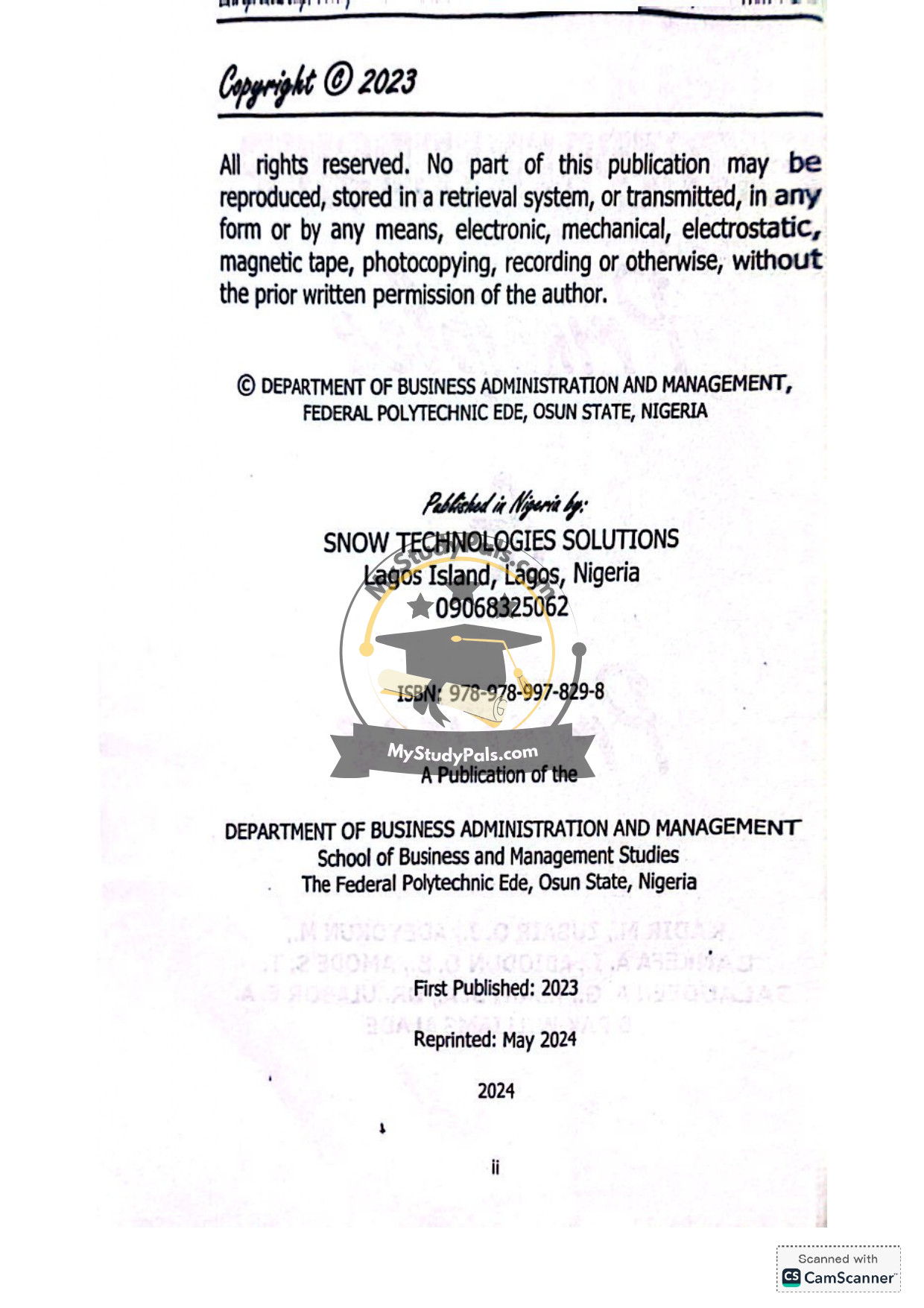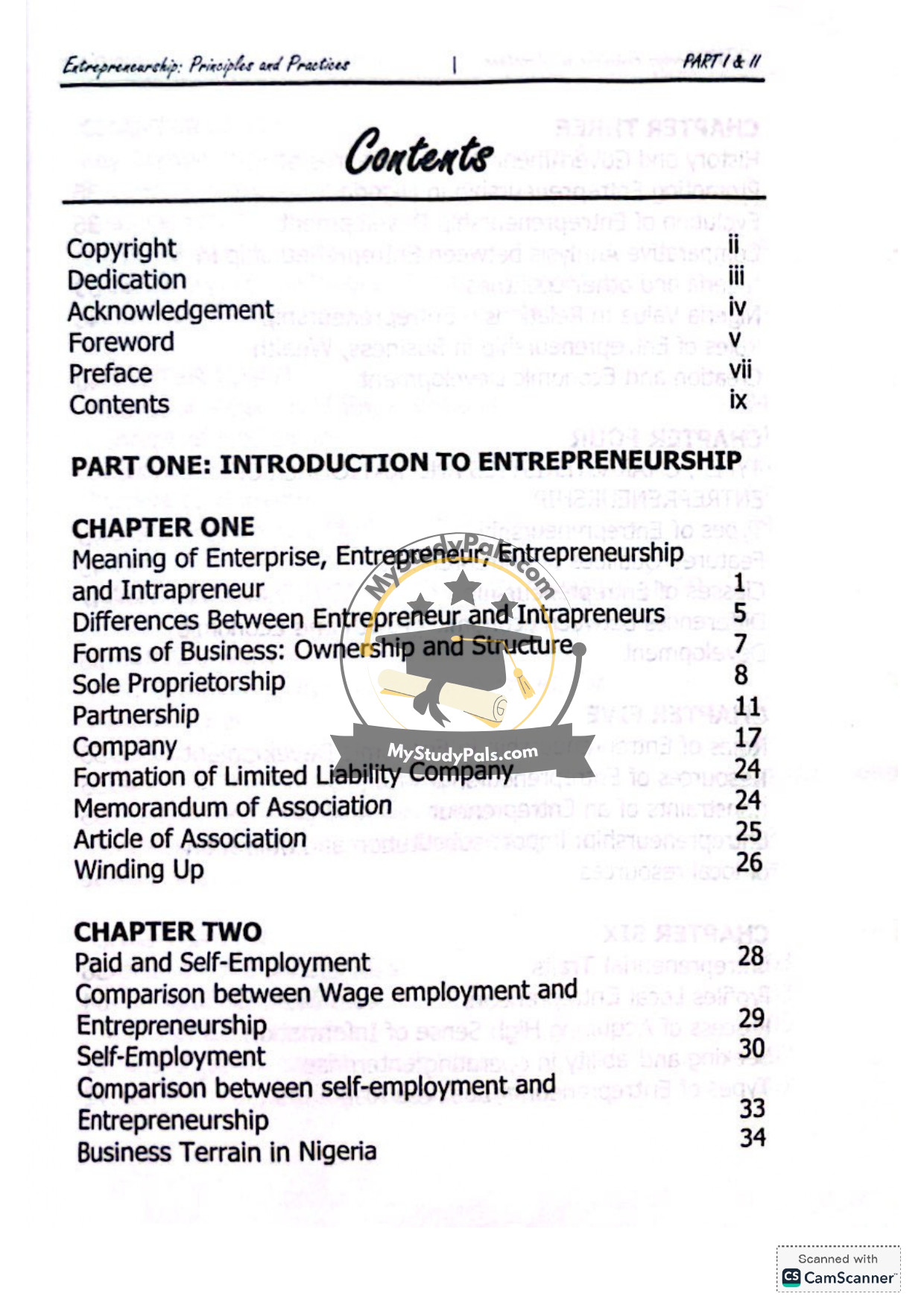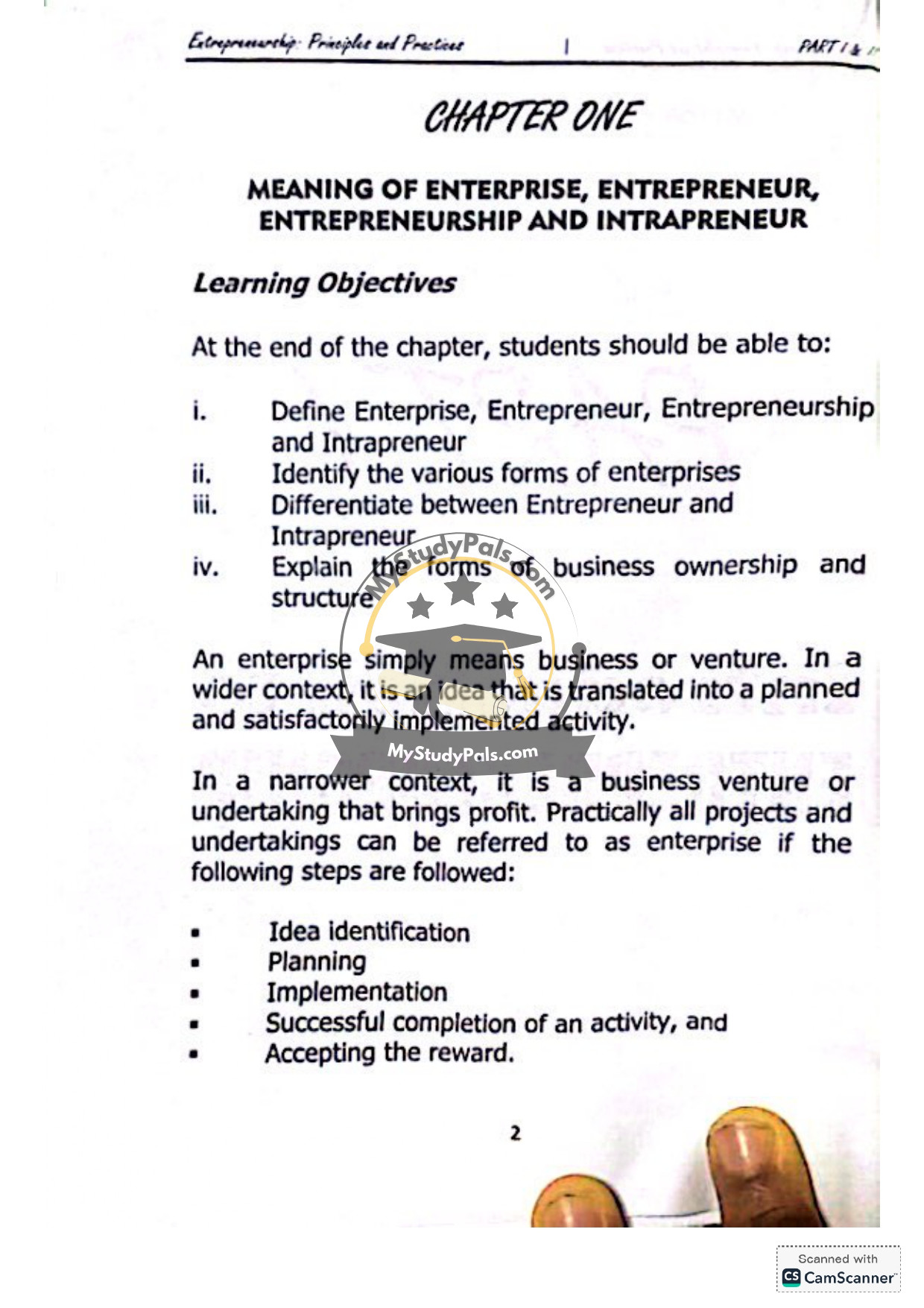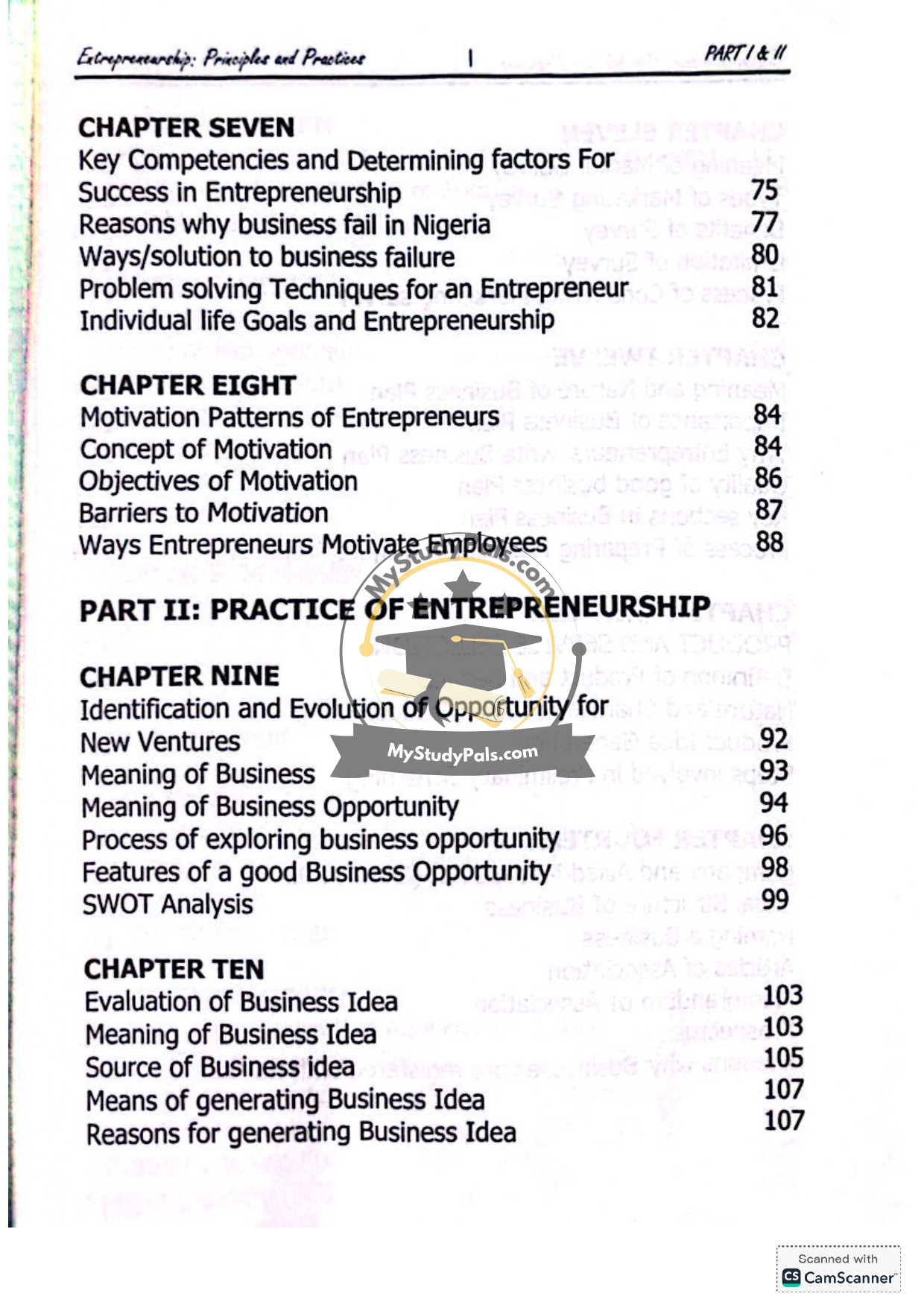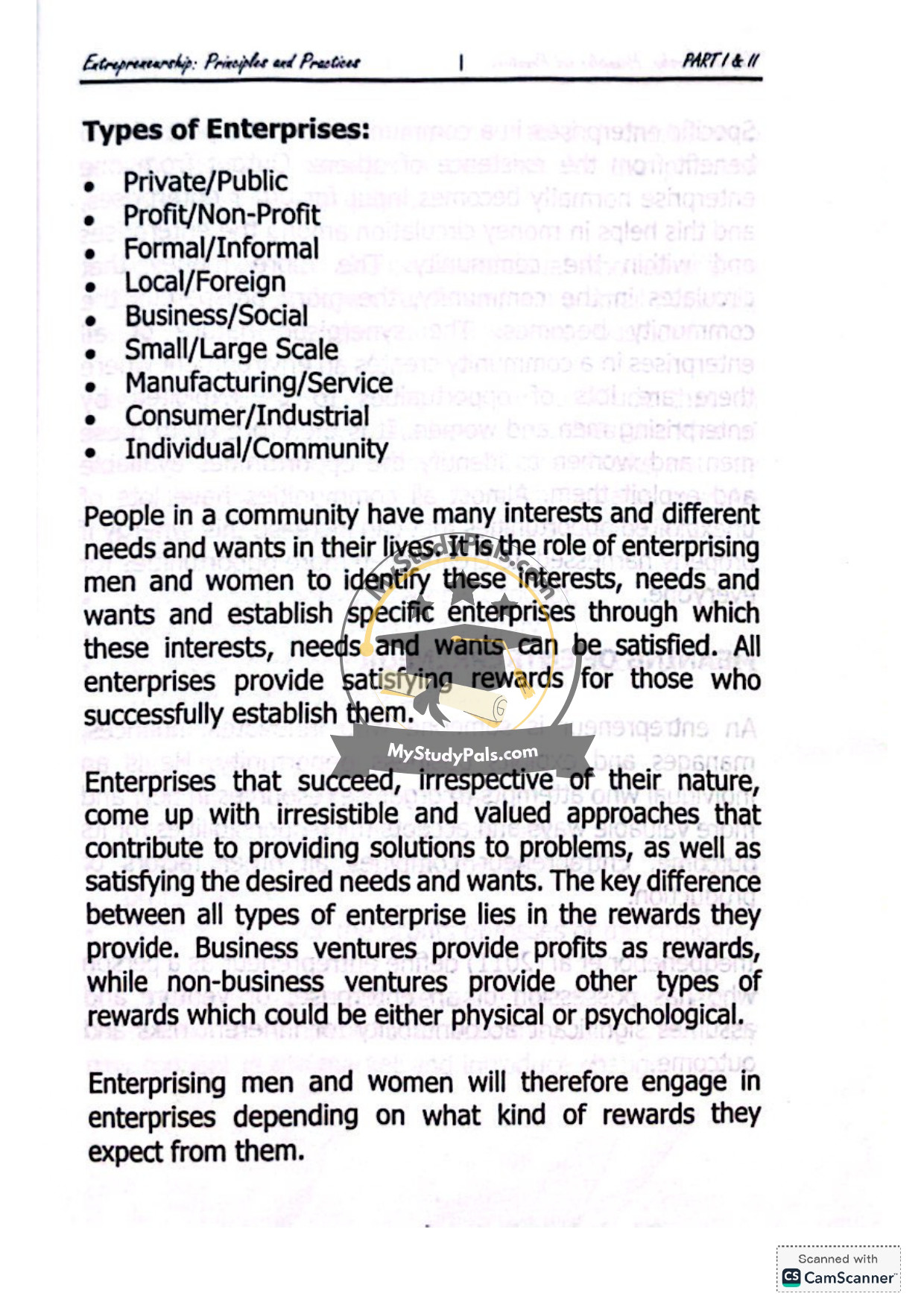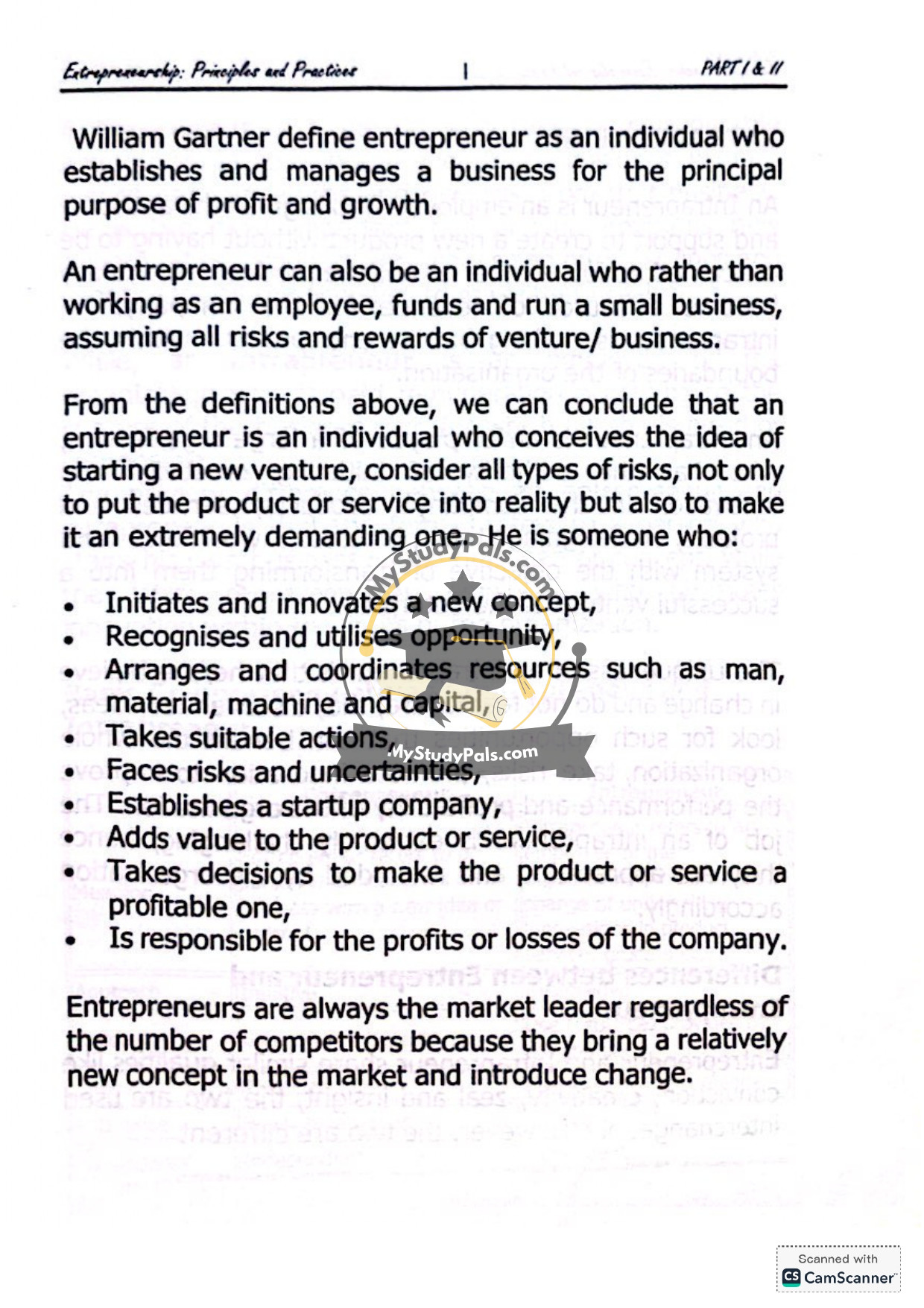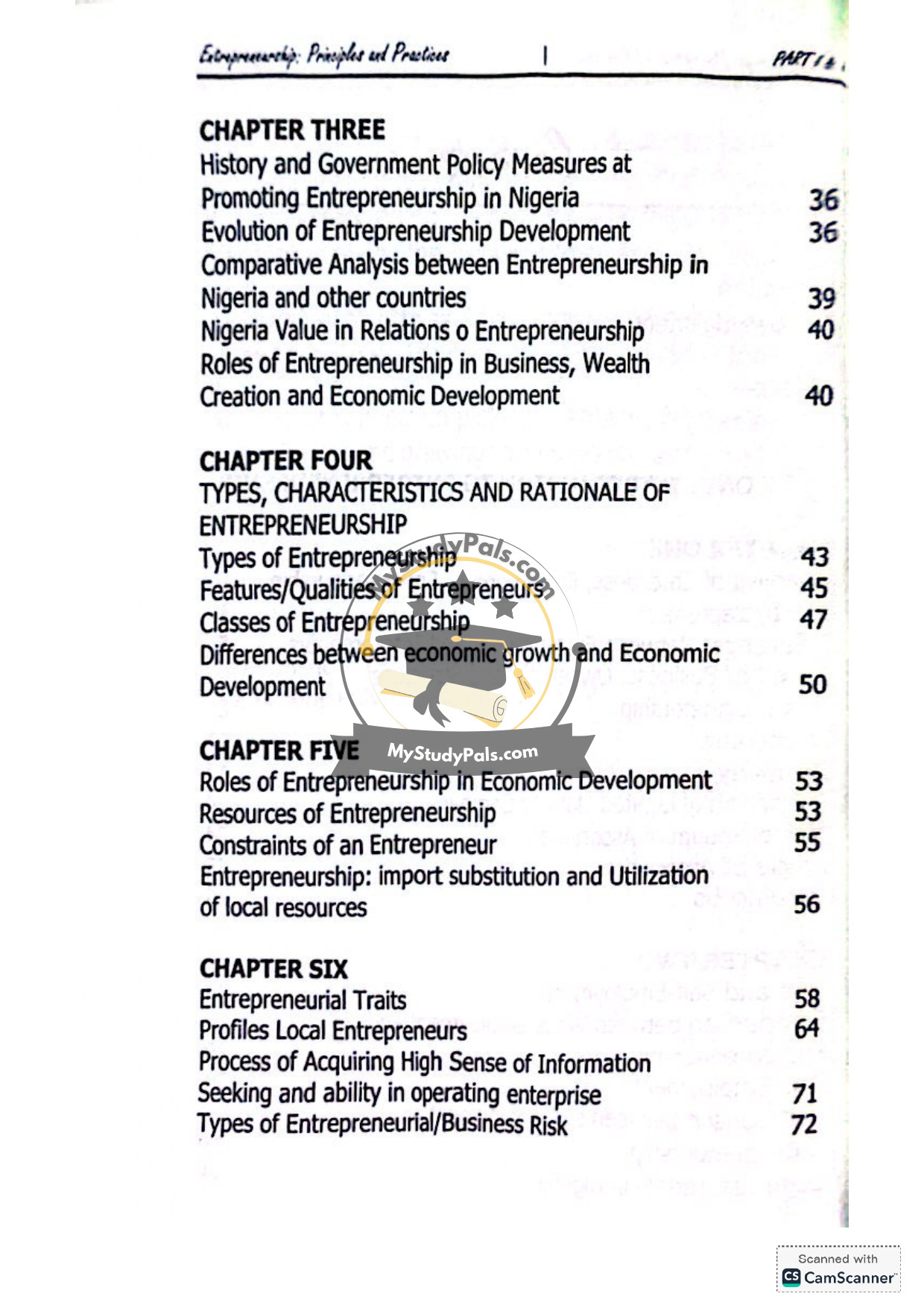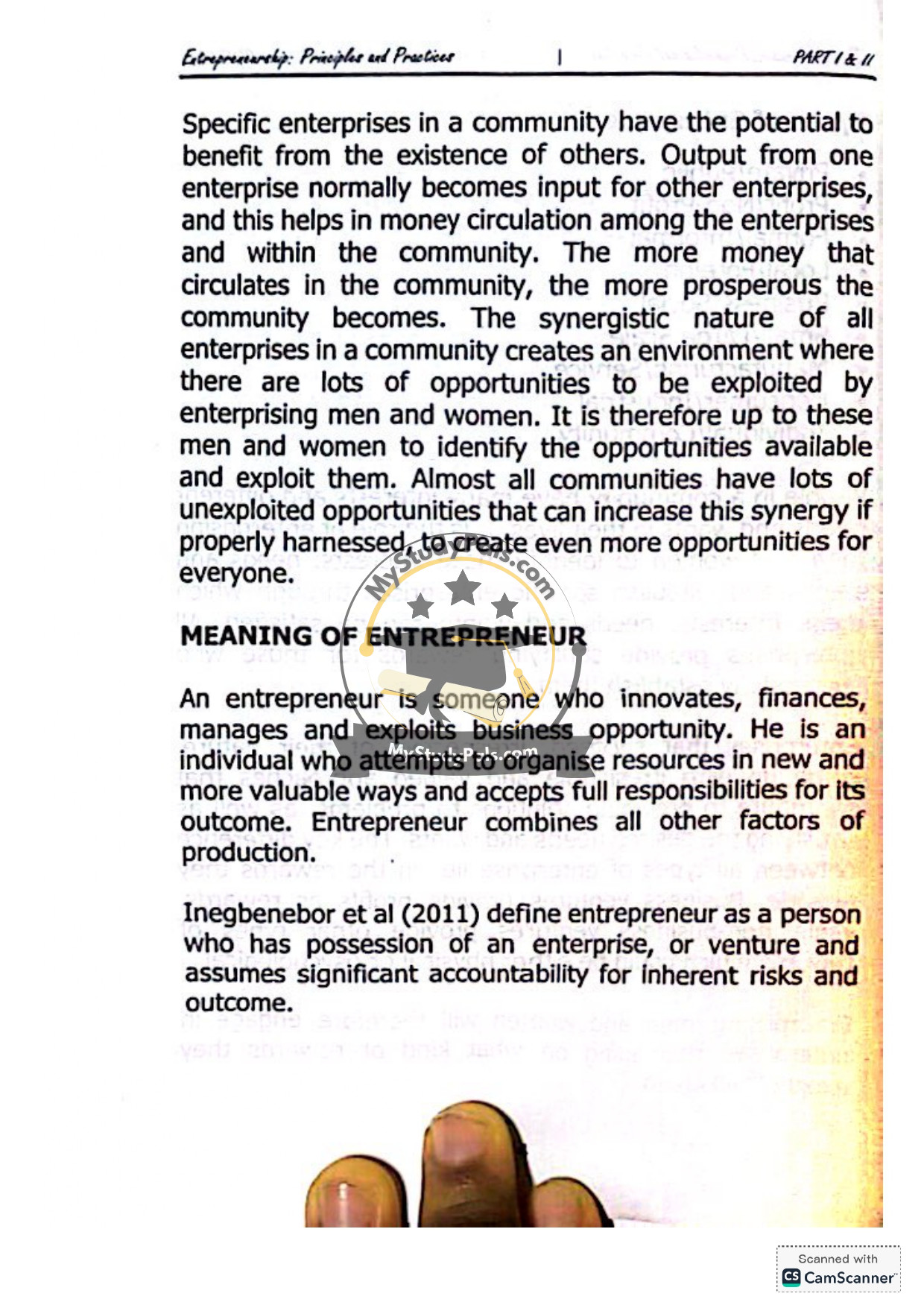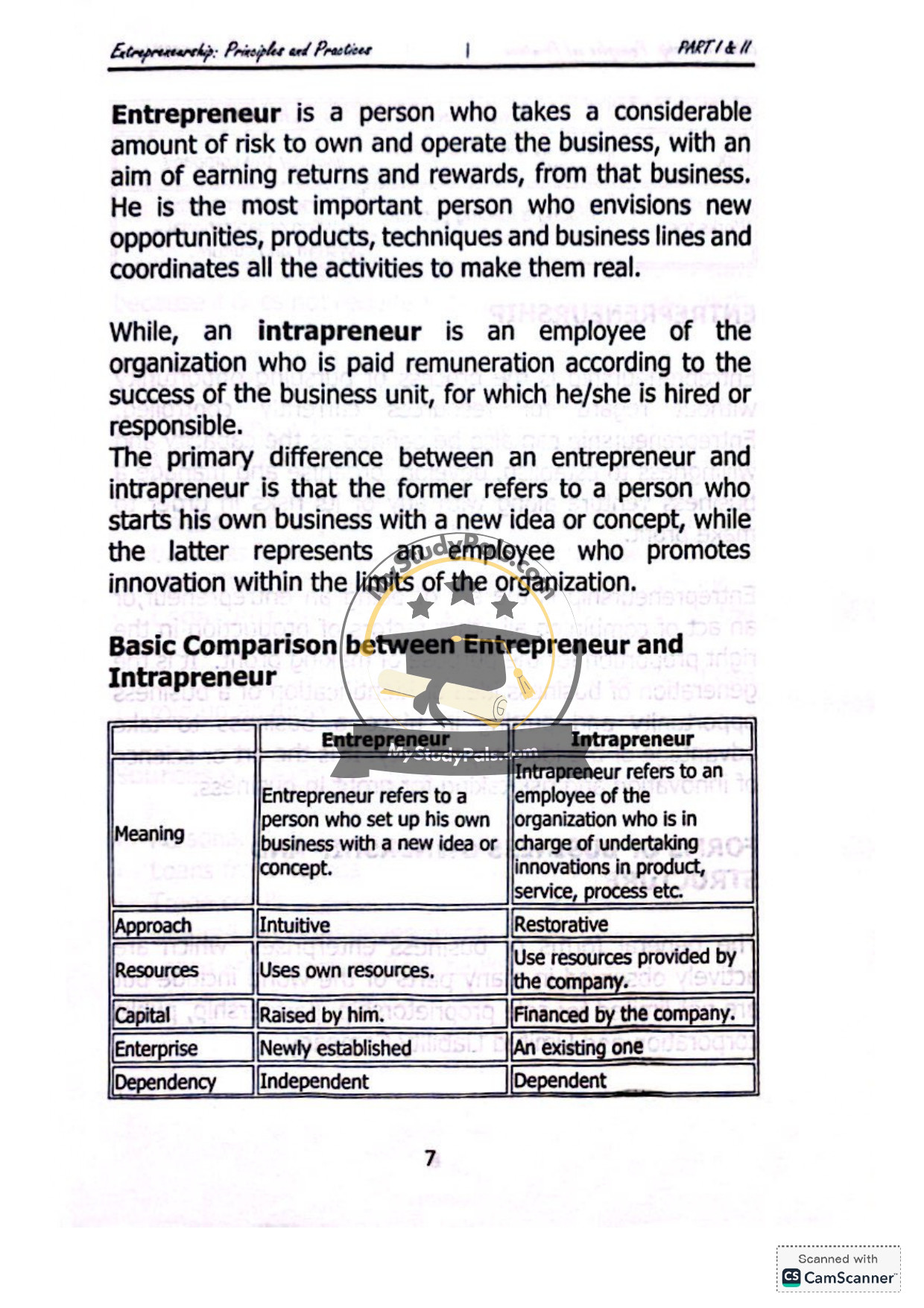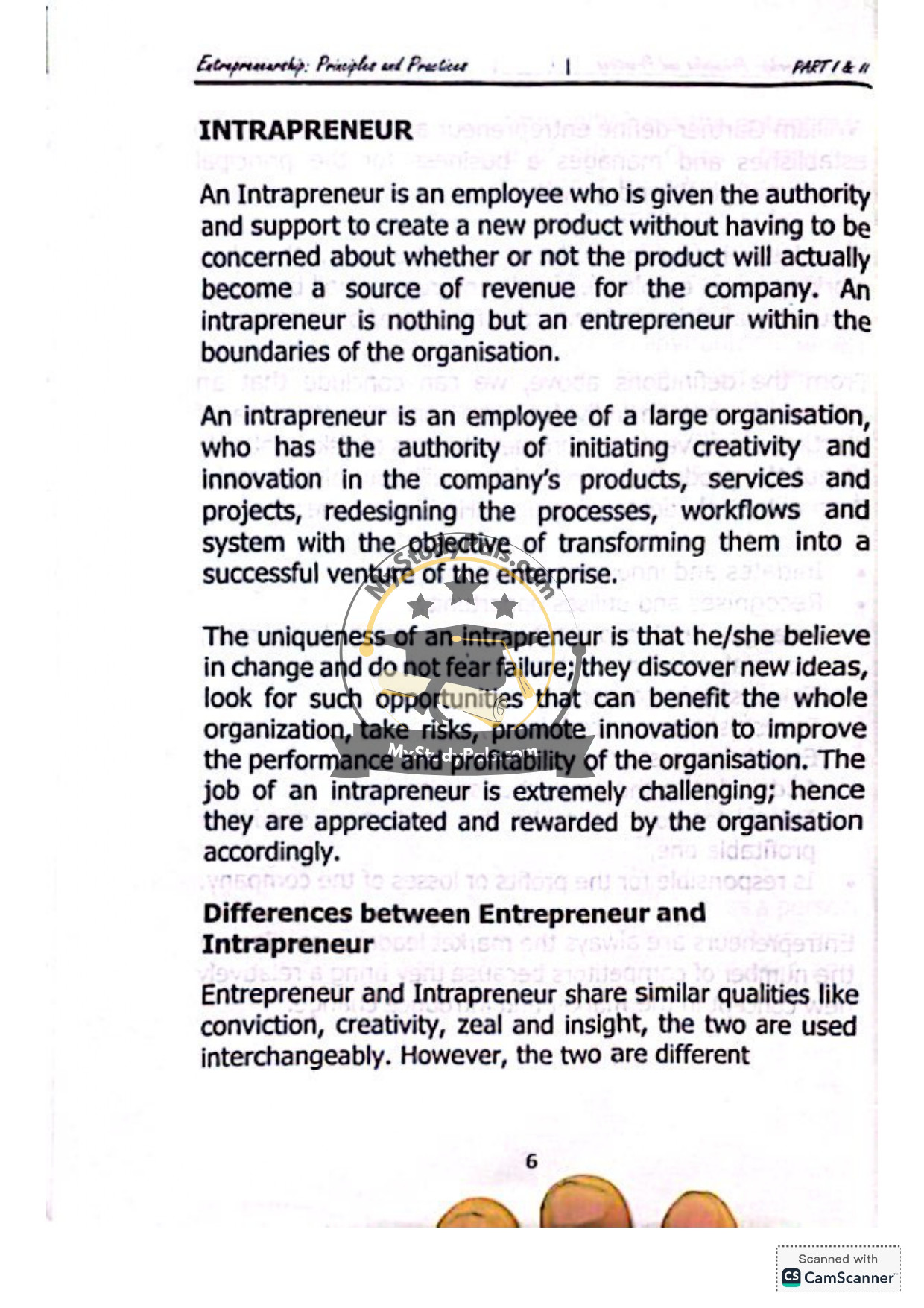ANWSER
Question 1:
Define an entrepreneur.
Answer:
An entrepreneur is a person who takes considerable risk to own and operate a business, aiming to earn returns and rewards. They innovate, finance, manage, and exploit business opportunities, organizing resources in new and valuable ways while accepting full responsibility for the outcome.
—
Question 2:
Define an intrapreneur.
Answer:
An intrapreneur is an employee within an organization who is authorized to initiate creativity and innovation in products, services, or processes. They operate within the company’s boundaries, using its resources, and are rewarded based on the success of their innovations.
—
Question 3:
What is the primary difference between an entrepreneur and an intrapreneur?
Answer:
The primary difference is that an entrepreneur starts their own business with a new idea, assuming all risks and using their own resources, while an intrapreneur promotes innovation within an existing organization, using the company’s resources and sharing risks with the employer.
—
Question 4:
List the types of enterprises.
Answer:
The types of enterprises include:
– Private/Public
– Profit/Non-Profit
– Formal/Informal
– Local/Foreign
– Business/Social
– Small/Large Scale
– Manufacturing/Service
– Consumer/Industrial
– Individual/Community
—
Question 5:
What are the roles of entrepreneurship in economic development?
Answer:
Entrepreneurship contributes to economic development by:
– Creating job opportunities.
– Promoting wealth creation and circulation of money in the community.
– Encouraging innovation and utilization of local resources.
– Supporting import substitution and reducing dependency on foreign goods.
– Enhancing synergy among enterprises, leading to community prosperity.
—
Question 6:
What are the key competencies for success in entrepreneurship?
Answer:
Key competencies include:
– Problem-solving skills.
– Ability to identify and exploit business opportunities.
– Risk management and decision-making.
– Resource coordination (man, material, machine, capital).
– Adaptability and resilience in facing uncertainties.
—
Question 7:
Explain the concept of motivation for entrepreneurs.
Answer:
Motivation for entrepreneurs involves internal and external drives to achieve business goals. It includes setting objectives, overcoming barriers, and employing strategies to inspire employees, such as rewards and recognition, to enhance productivity and innovation.
—
Question 8:
What are the reasons for business failure in Nigeria?
Answer:
Reasons include:
– Poor management and planning.
– Inadequate funding or capital.
– Lack of market research and competition awareness.
– Unfavorable government policies or economic conditions.
– Ineffective problem-solving techniques.
—
Question 9:
Describe the process of exploring a business opportunity.
Answer:
The process involves:
1. Identifying needs or gaps in the market.
2. Conducting SWOT analysis (Strengths, Weaknesses, Opportunities, Threats).
3. Evaluating feasibility and profitability.
4. Developing a business idea and plan.
5. Implementing and monitoring the venture.
—
Question 10:
What are the features of a good business opportunity?
Answer:
Features include:
– High demand or unmet need in the market.
– Alignment with the entrepreneur’s skills and resources.
– Potential for profitability and growth.
– Competitive advantage or uniqueness.
– Sustainability and scalability.
—



